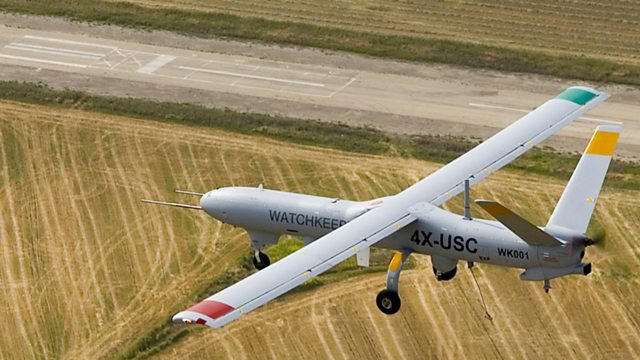Can we trust artificial intelligence to be ethical in a war?
Defence firms face a quandary over the ability of computers deciding to kill the enemy. We hear from the CEO of Thales, Patrice Caine.
As the abilities of artificial intelligence continue to advance the defence industry is facing the challenge of dealing with the ethical question of computers deciding to kill the enemy in a war. Patrice Caine, the chief executive of the defence giant Thales, tells us governments need to be involved in drawing the line for the use of AI in conflict. We also hear from the Βι¶ΉΤΌΕΔ's Frank Gardner who has visited the oil facilities in Saudi Arabia, which were recently destroyed in a drone attack, which he describes as a powerful weapon. Other views on the ethical dilemma of using artificial intelllgence in conflict zones are aired by Michael Clare, from Arms Control, an organisation which lobbies for restraint in the use of advanced AI in the military, Deepak Puri, at Dem Labs in Silicon Valley and Stephanie Hare, a technology and ethics researcher.
World leaders have been gathered in New York this week for a United Nations climate summit, which has led to a lot of coverage about the consequences of global warming. However there may be a quick solution that has been overlooked - planting more trees to create new forests, enough around the world to avert a climate catastrophe. The Βι¶ΉΤΌΕΔ's Ed Butler reports on the idea of reforestation.
The cult fitness start-up Peloton started selling shares in New York today. The company which sells high-end stationary bicycles equipped with screens to stream classes on demand, has attracted more than half a million subscribers. But the exercise bike has a hefty price tag and despite the excitement of investors Peloton has yet to make a profit. The Βι¶ΉΤΌΕΔ’s Samira Hussain checks out the hype for us.
(Picture: The Watchkeeper drone made by Thales. Copyright Thales.)
Last on
Broadcast
- Thu 26 Sep 2019 14:32GMTΒι¶ΉΤΌΕΔ World Service except Australasia

